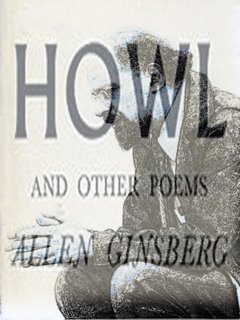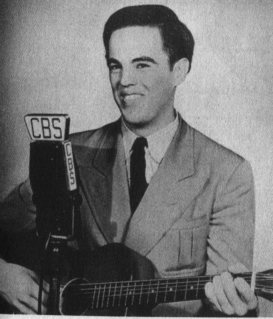This is interesting. After 9/11, Clear Channel sent out a list of banned songs to all of the radio stations they owned. Due to the sensitivity of the American public, Clear Channel decided best if they took some of their more "controversial" songs out of rotation. Below is a sampling of the offensive material on that list. And, by the way, 1 out of every 10 stations in the US is owned by Clear Channel.
Cat Stevens - Peace Train
Carole King - I feel the Earth Move
Queen - Killer Queen
Bruce Springsteen - I'm on Fire
Friday, April 28, 2006
Monday, April 24, 2006

"The only thing that can save the world is the reclaiming of the awareness of the world. That's what poetry does."
"We can never be sure that the opinion we are endeavoring to stifle is a false opinion; and if we were sure, stifling it would be an evil still."
 On Sunday, The New York Times Magazine featured an article devoted to Google's censorship of searches in China. Now, because The New York Times basically frames national discussion in America I'm proud to announce this week is Censorship week. Enjoy:
On Sunday, The New York Times Magazine featured an article devoted to Google's censorship of searches in China. Now, because The New York Times basically frames national discussion in America I'm proud to announce this week is Censorship week. Enjoy: As Benjamin Franklin once said, “whoever would overthrow the liberty of a nation must begin by subduing the freeness of speech.” Everyday there are people you’ll never meet who decide exactly what you should and shouldn’t watch, hear and read. This type of suppression has far-reaching implications, shaping everything from public opinion to legislation.
It is no small secret that commercial radio contain restrictions. No swearing. No sexual language. No violent speech. This reality has been moved into the spotlight with Howard Stern’s recent shift from terrestrial broadcast radio to satellite radio due to, what he claims as, unfair treatment and inconsistent obscenity constraints. However, something that receives far less attention are the hundreds of pirate radio stations operating across the country. Often broadcasting with a specific political bias, these tiny pirate radio stations are targeted by the FCC and shut down when discovered. The most famous of all American radio pirates is Stephen Dunifer of Free Radio Berkley. According to Dunifer, his micro-powered pirate station is a direct response to corporate radio’s narrow play list and limited range of viewpoints. The FCC reacted with years of expensive legal action in an attempt to silence Dunifer’s project. Breaking away from traditional rulings, Free Radio Berkley won against the FCC and is still in operation today.
Unfortunately, such outcomes have become the exception and not the rule. For example, Tipper Gore formed the Parents Music Resource Center (PMRC), which took the music industry to court over vulgarity and sexual lyrics. The PMRC’s aim was to force record labels to mark “obscene” albums with a black “parental advisory” sticker, notifying parents of possibly offensive content. This drew criticism from artists as diverse as Frank Zappa, John Denver and Jello Biafra, who would later be brought to court over obscenity charges for artwork contained in his band, Dead Kennedys’ album, Frankenchrist, a costly battle which nearly bankrupted his independent record label. Unlike Dunifer’s good fortune, the judge ruled in favor of the PMRC. Consequently, large retail stores - including the largest, Walmart, - refused to sell any album branded with a Parental Advisory sticker.
The intention of the PMRC was to shield children from objectionable material, yet they nor most anybody else pay too much attention to what is being taught in the classroom. As early as the 1950s, about one-third of all of American school’s teaching material came from corporations. With such a large amount of influence from big businesses it is inevitable they would put a different spin on economics, the environment and history. Some students are given books such as “How to really be a Millionaire” and “The Millionaire Next Door”. These books show how great it is to have money and builds up unrealistic expectations. As far as the environment goes, the damage done to the air, water and soil by factories are not discussed in depth, if at all. In history class, violent labor struggles like the Flint, Michigan Sit-Down Strike or the 1913 Christmas Day Massacre are most often missing. This means students are not getting the full story.
The problem of censorship is simple, there are facts and views that are considered dangerous or upsetting. The FCC and the PMRC ruling represents what the government thinks is in good and bad taste, and even though this is not acceptable, popular opinion also shapes some of the decisions made by the government. This part of what is censored and what is not has its roots in the 1800s. The stuffy restraint of the Victorian era has carried over into the twenty-first century. Another cause is the interests of corporations that want to conceal compromising information from consumers.
What is the solution? First is to dismantle the FCC. Easier said than done, right? But the airwaves are public property and have no business being monitored and interfered with by the government. This would then help change public opinion. It would be a radical change for people to view images they have been sheltered from, but after a while the population will be able to alter their tastes and make a judgment on what is worth their time and what is valueless. Lastly, corporate funding must be stopped. Industrial control is dangerous, that is why tax money should be used to create a variety of unbiased panels of scholars to write and edit textbooks for schools. This way the whole truth can be told.
From the music we buy to the books we read, to the newscasts we watch, we're not receiving the full truth. Thankfully, the solutions are within our reach, all we have to do is act on them. Perhaps it is Mark Twain who summed it up the best: “In our country we have those three unspeakably precious things: freedom of speech, freedom of conscience, and the prudence never to practice either.”
Saturday, April 22, 2006

Wanderlea - Nao (Juventude Twist)
Golden Boys - Se Voce Quiser Mas Sem Bronqu
A South American-tinged twofer for today's post. The first clip is of a 1960s songstress complete with playful horn bursts, a Nancy Sinatra-esque vocal and even some great Doo Wop Wops rounding out the retro kitsch.
As far as the Golden Boys are concerned, I grabbed this from a collection featuring a hodgepodge of Brazilian artists. This song just wants you to like it. It wants to sprout legs, run up to you and give you a great big bear hug. Notice the breezy guitar strumming at the beginning, it's a friendly hand begging you to grab ahold. Follow it and before long you'll be sipping Caipirinhas in a Conga line.
Wednesday, April 19, 2006
"If man is to survive, he will have learned to take a delight in the essential differences between men and between cultures. He will learn that differences in ideas and attitudes are a delight, part of life's exciting variety, not something to fear."
You're listening to a recording made by Alan Lomax of a man named Charlie Barnett singing "Run to Jesus for Refuge". Lomax's mission - and gift to all peoples - was to archive "primitive" music from all across the globe. This song is one of the best examples of the many, many, many gems
 found in those field recordings. After being asked to sing into the microphone, Charlie, on the spot, erupts into song. It seems that nothing is so effortless or so rewarding than the act of singing. In the midst of the trash-can-cover percussion and his ants-in-the-pants performance, we almost forget that this sound has been passed down through several generations, nearly as palpable as any quilt or necklace and far more sacred.
found in those field recordings. After being asked to sing into the microphone, Charlie, on the spot, erupts into song. It seems that nothing is so effortless or so rewarding than the act of singing. In the midst of the trash-can-cover percussion and his ants-in-the-pants performance, we almost forget that this sound has been passed down through several generations, nearly as palpable as any quilt or necklace and far more sacred.This got me wondering what's happening to smaller, niche cultures found all over the world. All the pleasant little colors that come with regionalism are being replaced with the same ubiquitous dreck.
Speaking from my own experiences in America, I've criss-crossed the midwest and traveled across the sunbelt finding pretty much everybody talks the same, watches the same television shows and wears the same kind of clothing. Even that sweet, lilting southern twang is slowly receding into memory with more and more folks copying "proper" diction from national programming.
The reason we don't find more roots musicians like Dock Boggs, Uncle Dave Macon or Skip James in Pop Culture is they're just too emotional, and unpolished to be marketable. This music ranks high in earnestness and low in irony, meaning it can't be sanitized into "product" for mass distribution.
Tuesday, April 18, 2006
There was once a museum owner whose museum hadn't been doing too well. The small town in which it operated didn't care for the previous Egyptian exhibit and there was only a modest turn out for the dinosaur displays a month prior. The owner had caught wind of a world reknown avant garde artist visiting one town over. In a last ditch effort, he went to meet the artist. Finally, the museum owner bumped into the famous man walking on the beach. The owner explained his situation and made a plea for the artist's help. The artist replied by picking up a piece of wood, handing it to the owner, and saying, "Call it Driftwood."


